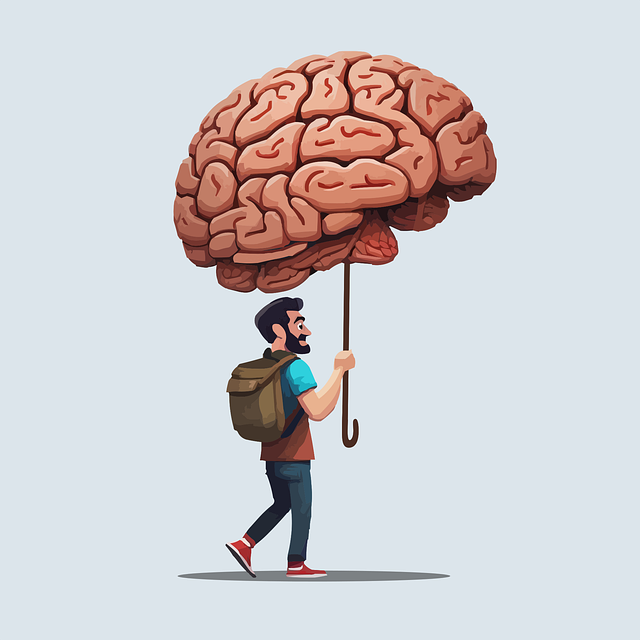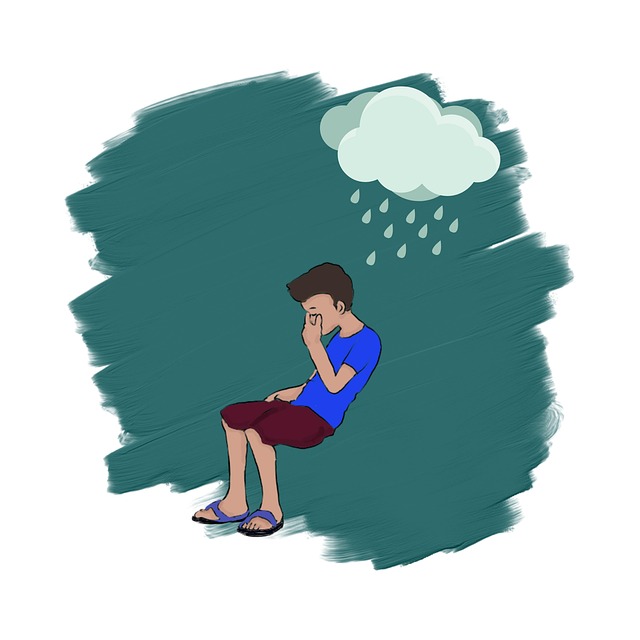In today's fast-paced world, mental health issues are a pressing concern, especially for sexual abuse survivors in communities like Castle Rock. Comprehensive mental health education is crucial through interactive programs focusing on social skills, workshops, and personalized strategies. These initiatives foster positive thinking, resilience, and coping mechanisms, improving outcomes for sexual abuse survivors. A safe learning environment, tailored curriculum for age groups, and evidence-based therapies are key components of effective programs, as demonstrated by Castle Rock Sexual Abuse Survivor Therapy (CRSAT). CRSAT measures success through surveys, feedback, and KPIs, providing ongoing support with structured follow-ups, peer groups, and digital resources, aligning with industry standards.
“Unveiling the Power of Mental Health Education: A Comprehensive Guide to Program Design”
In today’s fast-paced world, mental health awareness is more critical than ever. This article explores the intricate process of designing effective educational programs that address mental wellness. From recognizing the profound impact of comprehensive education to creating safe spaces, we delve into key strategies. We discuss age-appropriate curriculum, integrating evidence-based therapies like Castle Rock Sexual Abuse Survivor Therapy, and measuring success. By embracing these principles, educators can foster resilient minds and create a supportive learning environment for all.
- Understanding the Need for Comprehensive Mental Health Education
- Creating a Safe and Supportive Learning Environment
- Designing Age-Appropriate Curriculum and Activities
- Incorporating Evidence-Based Therapies and Techniques
- Measuring Success and Providing Ongoing Support
Understanding the Need for Comprehensive Mental Health Education

In today’s fast-paced world, mental health issues have become increasingly prevalent, affecting individuals across various demographics, including Castle Rock sexual abuse survivor therapy clients. This growing crisis highlights the urgent need for comprehensive mental health education within communities and institutions alike. Mental health awareness programs play a pivotal role in empowering individuals to recognize and manage their emotional well-being effectively. By integrating initiatives such as social skills training, these educational efforts can foster positive thinking, resilience, and coping mechanisms, ultimately leading to improved mental health outcomes.
Comprehensive mental health education goes beyond mere information dissemination; it involves interactive workshops, group discussions, and personalized strategies tailored to individual needs. This approach ensures that participants gain practical knowledge and develop essential skills to navigate stress, anxiety, and trauma. Given the profound impact of early interventions, especially for survivors of sexual abuse seeking therapy in Castle Rock, educating communities about mental health can significantly reduce stigma, encourage help-seeking behaviors, and promote overall well-being.
Creating a Safe and Supportive Learning Environment

Creating a safe and supportive learning environment is paramount when designing mental health education programs, especially when addressing sensitive topics like sexual abuse recovery. Organizations like Castle Rock Sexual Abuse Survivor Therapy understand that fostering an inclusive space encourages open dialogue and empowers individuals to share their experiences. This involves establishing ground rules that emphasize respect, confidentiality, and active listening. Facilitators should model empathetic behavior, ensuring every participant feels heard and valued.
Effective communication strategies are essential tools in this process. Public awareness campaigns development can help break down stigma and create a culture of understanding. Through interactive Stress Management Workshops Organization sessions, learners can develop coping mechanisms and build resilience. This supportive environment is crucial for participants to navigate their emotional journeys, ultimately enhancing the program’s effectiveness.
Designing Age-Appropriate Curriculum and Activities

When designing a mental health education program, particularly for survivors of sexual abuse like those who might seek therapy at Castle Rock Sexual Abuse Survivor Therapy, it’s crucial to tailor the curriculum and activities to the specific age groups of the participants. For younger individuals, activities should focus on fostering emotional intelligence through interactive games and storytelling, encouraging them to identify and express their feelings in a safe environment. This can help build resilience and promote positive thinking.
For older adolescents and adults, discussions around emotional regulation can be more nuanced, incorporating real-life scenarios and case studies to spark thoughtful conversations. Group exercises that encourage peer support and shared experiences can create a sense of community, further enhancing the therapeutic effect. Age-appropriate content ensures that each participant feels understood and engaged, fostering a deeper connection with the material and the overall healing process.
Incorporating Evidence-Based Therapies and Techniques

Incorporating evidence-based therapies and techniques is a cornerstone of any effective mental health education program. By teaching strategies derived from Castle Rock Sexual Abuse Survivor Therapy, for instance, educators can empower individuals to navigate trauma and promote healing. This approach leverages research-backed methods that have proven successful in helping survivors process their experiences and develop coping mechanisms, ultimately enhancing their overall well-being.
Integrating Burnout Prevention Strategies for Healthcare Providers into the curriculum further strengthens the program’s impact. Mental health professionals must also prioritize self-care to avoid burnout and maintain their own mental health. Encouraging the development of a robust self-care routine can help providers sustain their ability to support others, ensuring that they remain resilient and effective in their work. This holistic approach aligns with broader Mental Health Awareness efforts, fostering an environment where both caregivers and care recipients thrive.
Measuring Success and Providing Ongoing Support

Measuring success and providing ongoing support are vital components of any comprehensive mental health education program. To assess the effectiveness of the initiative, various qualitative and quantitative methods can be employed, such as pre- and post-program surveys, participant feedback, and data on key performance indicators (KPIs). By comparing changes in participants’ mental wellness levels, stress management skills, and coping mechanisms before and after the program, educators can gain valuable insights into its impact.
At Castle Rock Sexual Abuse Survivor Therapy, we understand that recovery is an ongoing process. Therefore, our programs include structured follow-up sessions and resources for continuous support. This approach leverages Risk Management Planning for Mental Health Professionals to ensure safety and efficacy while integrating Mental Health Policy Analysis and Advocacy to promote holistic care. Regular check-ins, peer support groups, and access to digital resources empower individuals to maintain their mental wellness and navigate life’s challenges with resilience.
Mental health education programs play a pivotal role in fostering well-being, especially for vulnerable populations like sexual abuse survivors. By integrating elements from Castle Rock Sexual Abuse Survivor Therapy and evidence-based practices, educators can create transformative experiences. A well-designed program, as outlined in this article, ensures that students of all ages learn in a safe space, engage with relevant curricula, and gain access to effective therapies. Through comprehensive education, we can empower individuals to navigate their mental health journeys with resilience and support.











